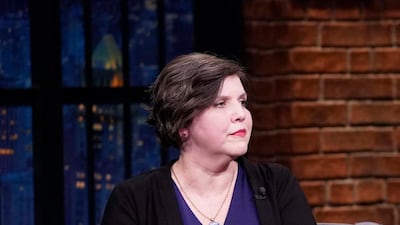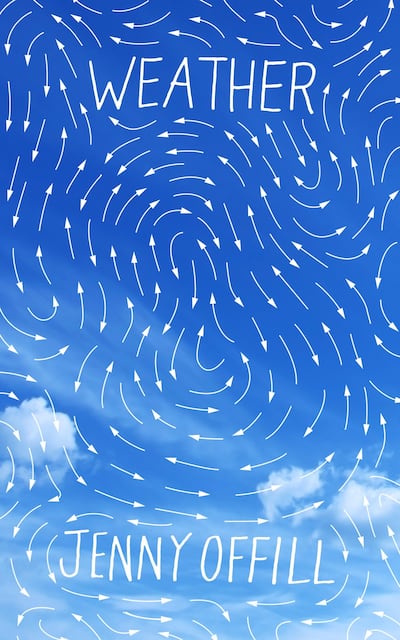"How will the last generation know it is the last generation?" asks one of the characters in Weather. This pressing question, as well as others about being faced with the "end times", in Jenny Offill's latest novella, seems incredibly poignant considering the coronavirus pandemic that has a stranglehold on the world right now.
While the book focuses on the volatile political and meteorological weather in the years since the 2016 US election, the central question that it poses is: how do we go about our normal lives in the midst of an apocalypse?
The fragmentary narrative follows the pattern of Offill's critically acclaimed 2014 novel Dept. of Speculation. While the latter details the disintegration of a marriage, her latest book charts the disintegration of the mind amid an imminent climate emergency.
Weather is longlisted for the prestigious Women's Prize for Fiction, for which the winner will be announced on Wednesday, June 3. Offill says she was "thrilled" to be nominated alongside venerated writers such as Hilary Mantel, Edna O'Brien and Jacqueline Woodson. "It is a dauntingly impressive list," she says.
Weather is a sliver of a book that takes a tart yet humorous look at the myriad ways in which people prepare for an environmental crisis – either with cynicism, or by tumbling into a state of panic and befuddlement, or by being proactive.
Naturally, people may draw parallels to what is happening today. “In many ways, climate change is confusing because it moves in fits and starts a sort of cumulative versus abrupt disaster,” Offill says.
“Sudden disasters like this fast-moving pandemic are much more easily recognised as threats. At this point, public health officials and governments are able to issue clear directives about what we must all do right now to slow and eventually end this disaster.”
The author says she wanted to write more about the human condition, rather than directly about climate change and the dread it causes.
The protagonist Lizzie is a librarian living in an unnamed New York borough. The story is as much about the global crisis as about womanhood, as Lizzie juggles her roles as a devoted mother, wife and a sister. A chapter in the book details Lizzie accompanying a friend to an affluent dinner in Silicon Valley, where investors chat about seeking out the safest place to hunker down during a doomsday event.
So, considering the events the world is experiencing, does Offill agree with the idea that inequality is about to teach us all an invaluable lesson?
“The pandemic is showing how frayed the fabric of our societies is because of these inequalities,” she says.
“I read a story about a small ventilator company in Seattle that was fielding calls from very rich people who wanted to buy ventilators for themselves. This is an obscene way to live, and I think that is becoming more and more apparent.”
Another recurrent theme in the novel is the fear of mortality. “My number one fear is the acceleration of days,” Lizzie says at one point. Offill does not share that same fear. Instead, she likes the “sense of humility that getting older brings”.
As the narrative of Weather goes on, it dives into glaring issues of modern times, such as social media, something Offill is not really a fan of.
While the author initially found Twitter gratifying, getting instant feedback from her readers, she has since taken a step back from the platform.
“One day, I was on a walk and my thoughts were roaming around. I found myself narrowing them to fit into a tweet, and I thought: ‘I will spend it all this way – there will be nothing left for my books,’” she says.
Given that Offill's natural style is realised in compact paragraphs and nimbly pared-down lines anyway, Weather works as the perfect tonic for our anxiety-riddled times.
The shortlist for the Women’s Prize for Fiction will be announced on Wednesday, April 22, and the winner of the award will be announced on Wednesday, June 3


